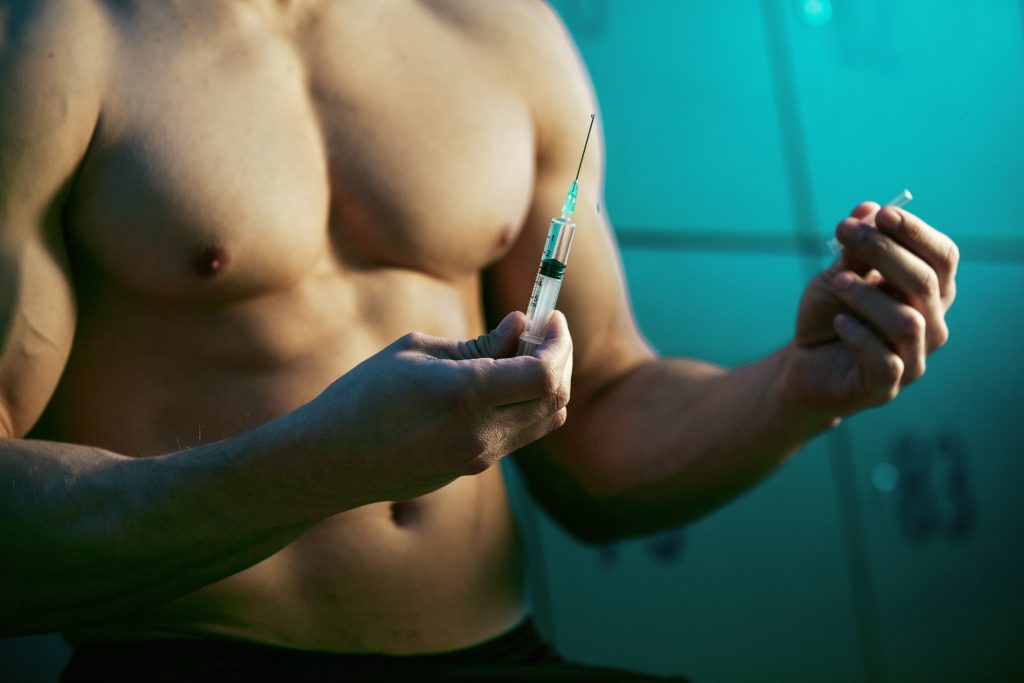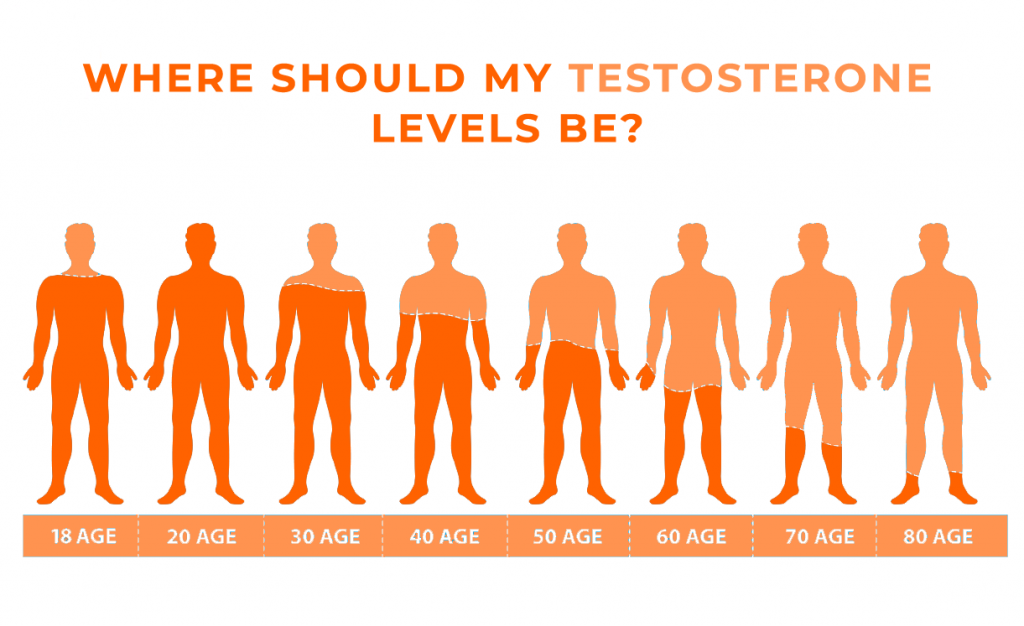Personalized Testosterone Therapy for Men
You push hard. You work long hours. You provide for your family, your team, your business. But lately… something’s off. The energy isn’t there. The drive isn’t the same. You’re dragging when you used to dominate.
That’s not “just getting older.” That’s a warning sign your testosterone may be dropping and it’s time to do something about it.
At The Phoenix Men’s Health Center, we help high-performing men like you take control of their health, their energy, and their life with medically supervised testosterone therapy.
WHY TESTOSTERONE MATTERS
Testosterone plays a critical role in:
Supporting healthy energy levels
Maintaining muscle mass and strength
Enhancing mental clarity and focus
Supporting a healthy sex drive
Helping with mood stability
Supporting bone health
When levels drop, you may experience noticeable changes in your physical, mental, and emotional well-being.

SIGNS YOU MAY HAVE LOW TESTOSTERONE
-
Persistent low energy or fatigue
-
Reduced muscle mass or difficulty gaining strength
-
Low libido or changes in sexual function
-
Mood swings, irritability, or lack of motivation
-
Increased body fat, especially around the abdomen
-
Difficulty concentrating or brain fog
-
Decreased bone density over time
Note: These symptoms can have many causes. That’s why we start with a comprehensive $149 screening, including lab work and a provider consultation.
IS TESTOSTERONE THERAPY SAFE?

When prescribed and monitored by an experienced provider, testosterone therapy can be a safe and effective option for men with clinically low testosterone.
Your safety is our top priority, which is why every plan includes:
Comprehensive lab testing before treatment begins
Regular follow-up visits to track progress and make adjustments
Ongoing monitoring to ensure optimal dosing and minimize side effects
YOUR TESTOSTERONE THERAPY OPTIONS
At The Phoenix Men’s Health Center, our goal is simple: to give every man the right testosterone therapy for his body, lifestyle, and goals. We do not believe in one-size-fits-all. Your treatment plan is built around you, backed by lab work and medical expertise.
Pellet
Therapy
Small pellets placed under the skin release testosterone steadily for 3–6 months. Ideal for men who want consistent levels without the hassle of weekly or daily dosing.
Learn More →
Testosterone Injections
Fast-acting and precise dosing with options for in-office administration or training for self-injection at home. Great for men who want control over timing and dosage.
Learn More →
Testosterone Creams & Gels
Daily topical application that delivers bio-identical testosterone through the skin. Adjustable, non-invasive, and perfect for men looking for flexibility in dosing.
Learn More →
| INJECTIONS | PELLETS | CREAM | ORAL | |
|---|---|---|---|---|
|
Treatment Frequency
|
INJECTIONS
Every 7-14 days
|
PELLETS
Every 5-6 months
|
CREAM
1-2 times a day
|
ORAL
2-4 times a day
|
|
Fastest Increase of Testosterone Levels
|
INJECTIONS
|
PELLETS
Slow Release
|
CREAM
|
ORAL
|
|
Strongest Increase of Testosterone Levels
|
INJECTIONS
|
PELLETS
|
CREAM
|
ORAL
|
|
Consistent Levels
|
INJECTIONS
|
PELLETS
|
CREAM
|
ORAL
|
|
Adjustible Quickly
|
INJECTIONS
|
PELLETS
|
CREAM
|
ORAL
|
|
Lower Cholesteral Levels
|
INJECTIONS
|
PELLETS
|
CREAM
|
ORAL
|
|
Ease
|
INJECTIONS
|
PELLETS
|
CREAM
|
ORAL
|
Your First Step
$149 Testosterone Screening
Includes:
Comprehensive lab panel
One-on-one consultation with a men’s health provider
Personalized plan with your results
Quality Testosterone Research
“Low Testosterone levels are associated with an increase risk of diabetes, heart disease, and carotid atherosclerosis.” Diabets Care 2013 June; Vol.36, No.6: 20-30
“Loss of testosterone (Can/may) causes decreased muscle mass and strength, increased fat, decreased libido, erectile dysfunction, depression, osteoporosis, decreased energy, decreased well-being, decreased protection from heart disease and bone loss.” Archives of Family Medicine; 1999;Vol. 8:252-263.
“Testosterone lowers fat, improves body composition, protects agains diabetes and heart disease.” International Journal of Obesity and Metabolic Disorders 1992 Dec;16(12):991-7
“Loss of testosterone causes loss of libido, energy, strength, sexual function, memory, cognition, muscle and bone. Testosterone replacement therapy, as far as quality of life is concerned, is tremendous.” Medical Crossfire 2001 Jan;Vol.3 No.1:17-18

Are my testosterone values normal for my age?
We get this question all of the time. This is a complex question that deserves a more well informed answer. Not only do we need to look at your health results, but also your entire health picture.
Every patient is different and we will need to look at other factors in their lives such as stress, sleep, diet and disease states such as Diabetes, Obesity, and Heart Disease. All of these could easily be affecting his testosterone levels.
We have put together a group of case studies to help get a clearer picture of how to determine if testosterone levels are low. Read them in our blog post about testosterone levels here.
Testosterone Therapy FAQS
The only way to know for sure is through a lab test. Common signs include low energy, reduced muscle mass, stubborn belly fat, low sex drive, mood changes, or brain fog. If you live in Phoenix, Scottsdale, Tempe, Chandler, or surrounding areas and you are experiencing these symptoms, our $149 screening will give you the answers.
When prescribed and monitored by an experienced provider, testosterone therapy can be a safe and effective option. At The Phoenix Men’s Health Center, we monitor your labs, symptoms, and progress to keep you in the optimal range. We work with men throughout Phoenix, Scottsdale, Mesa, and the East Valley.
Many men in the Phoenix area notice a boost in energy, mood, and focus within weeks. Physical changes like muscle gain and fat loss may take a few months. Every man responds differently, but with the right plan, progress is possible.
We offer pellet therapy, testosterone injections, and topical creams or gels at our Phoenix clinic. Each method has its own advantages, and we will help you choose the one that fits your lifestyle and goals best.
Our $149 screening, available at our Phoenix location, includes a comprehensive lab panel, a one-on-one consultation with a men’s health provider, and a personalized plan based on your results. It is the first step toward taking control of your energy, focus, and performance.
No. Low testosterone can happen at any age. If you live in Phoenix or the surrounding Valley cities and your labs and symptoms show that you could benefit from therapy, we can help you — whether you are in your 30s, 40s, 50s, or beyond.
If low testosterone is a factor in your ED, therapy can improve sexual health and performance. For other causes of ED, we also offer targeted treatments like PRP, GAINSWave, and more at our Phoenix clinic. You can learn more HERE.

